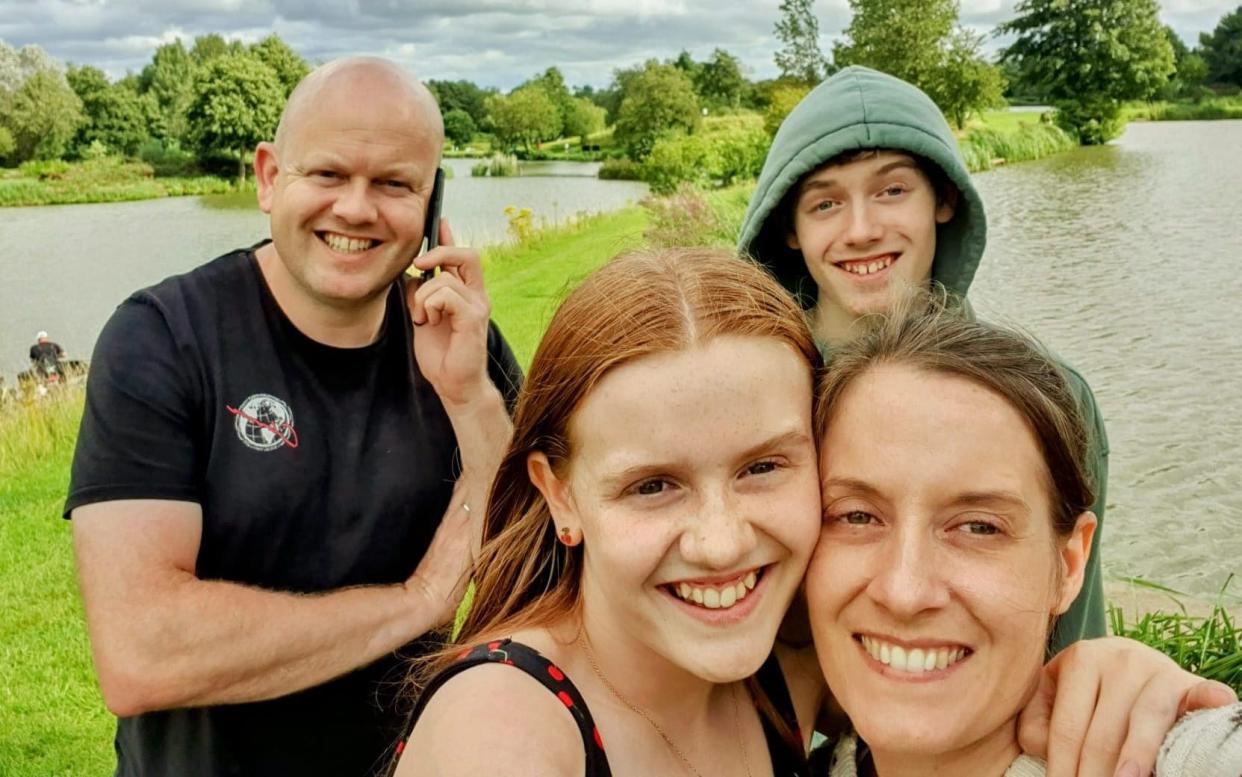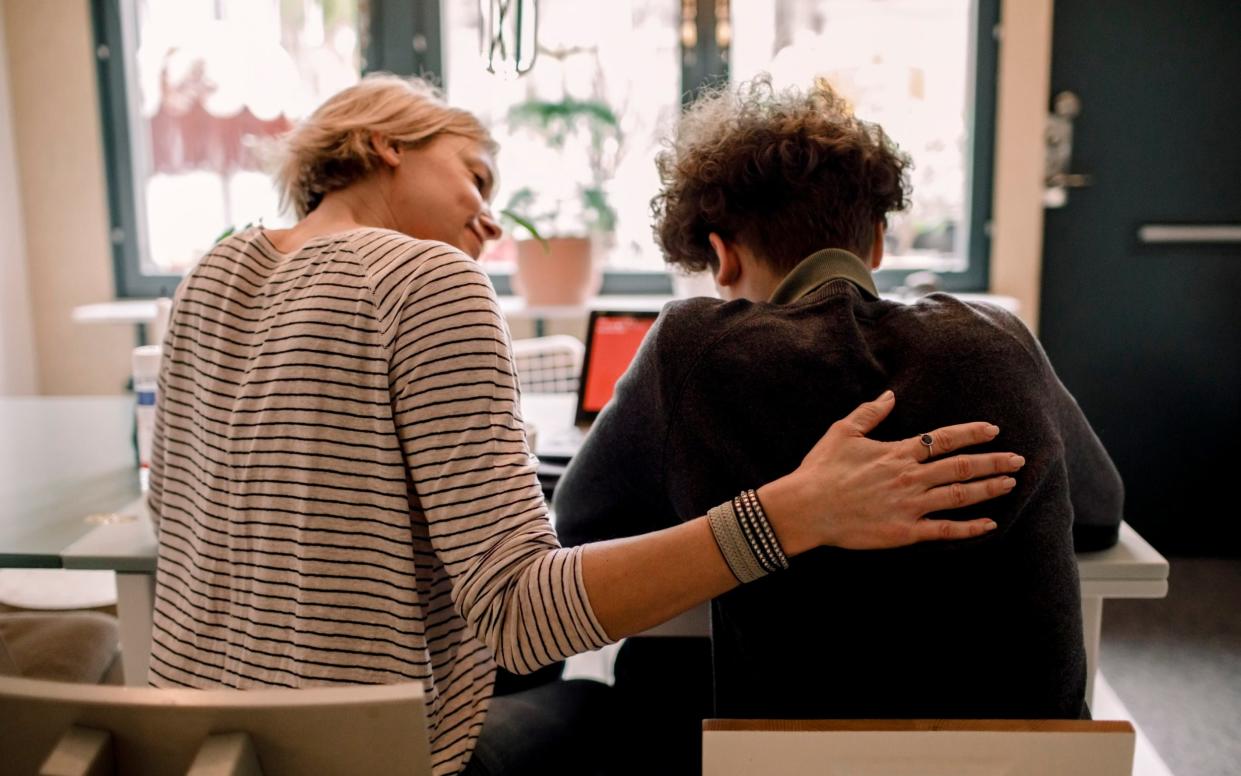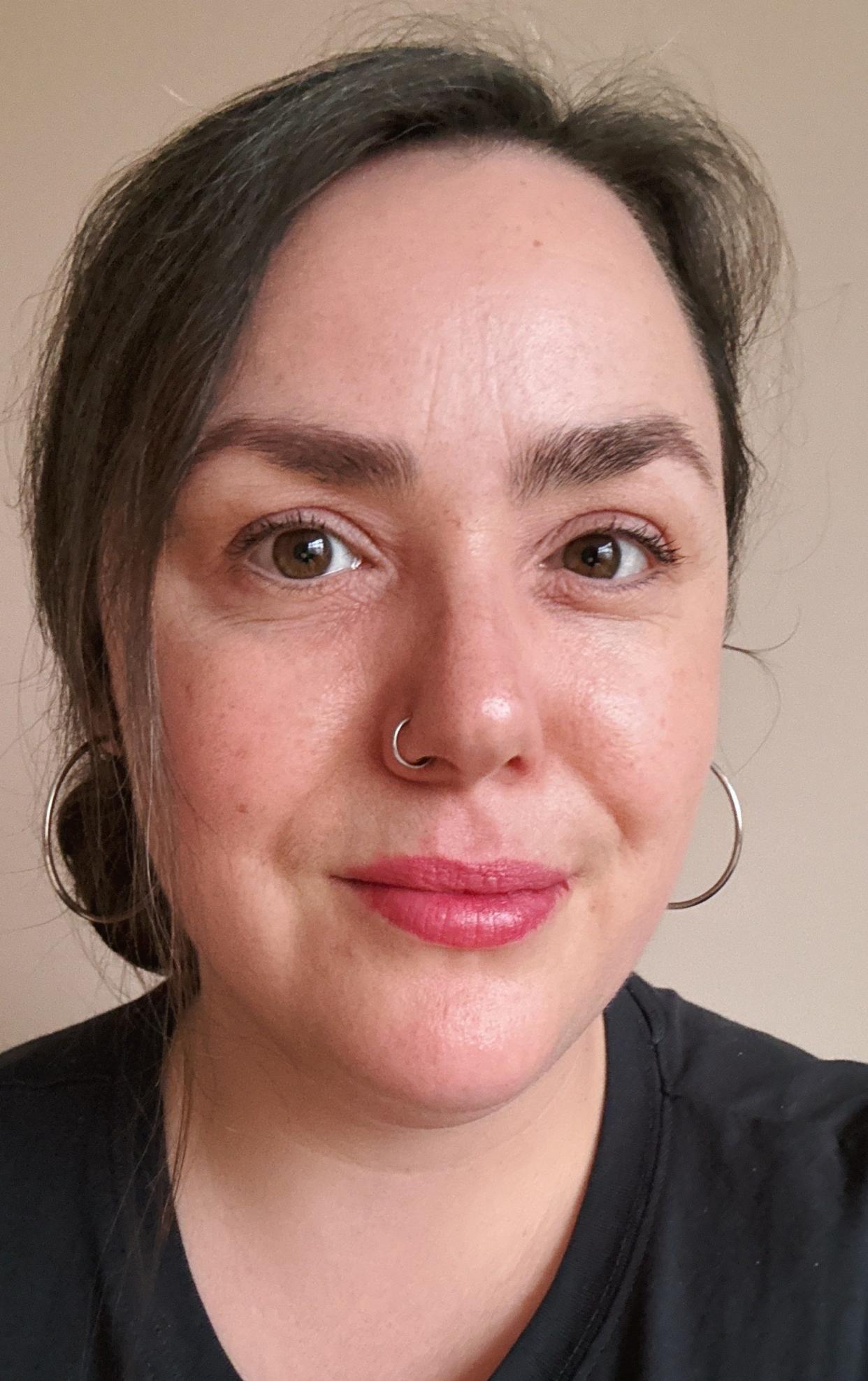‘There’s no way each individual can be catered for’: Why more parents are homeschooling

Sarah Hayes had never intended to home-educate her children. To all intents and purposes, theirs was a near-perfect setup, at a small private prep school near their house in the Home Counties. But, watching her previously happy young daughter become increasingly stressed and withdrawn, thanks to two house moves, with the Covid pandemic in the middle, she felt compelled to explore alternative options. Hayes ended up pulling both her children out of school to teach them at home for a year.
“It was probably the hardest decision we’ve ever made, but it was one of the best things we could have done,” she says. “The freedom to go at our own pace without external pressure, the learning opportunities offered by the real world, the quantity and quality of online resources and the kindness of those in the same boat.”
They are among the many families who have turned to home education, with numbers soaring in recent years. Brand new research, unveiled by the BBC this week, has shown the number of pupils moving to homeschooling has risen 22 per cent in the last year alone. The need to protect mental health was cited as the biggest factor in the recent increase – 64 per cent of families cite it as the main reason behind their decision.
In 2020, data from The Children’s Society indicated that British children were among the unhappiest in Europe. Mental health issues and special needs were increasingly key factors behind the homeschooling movement. In February 2024, these concerns accounted for 54 per cent of parents who chose to home-educate – up from around 30 per cent in 2023, according to Wendy Charles-Warner, chair of the home education charity Education Otherwise.
“That’s really worrying,” says Charles-Warner. “These aren’t people coming to home education because they want to teach their child at home. It’s because the education system is not educating their child.”
Estimates by the Department for Education show that 97,000 children – or more than one in 100 – were homeschooled last summer term: an increase of 11,000 on the 86,000 being taught at home at the start of 2023, although the reality is estimated to be much higher. And the data suggests the surge in homeschooling is here to stay.
Now, a Bill going through parliament aims to place these home education arrangements under increasing scrutiny. Amid concerns over so-called ‘ghost pupils’ dropping out of the system, the Bill, which has cross-party support, would oblige each council to maintain a list of home-schooled children, as well as ensuring that parents provide an adequate education.

Flick Drummond, MP for Meon Valley, who tabled the Register for Children Not in School Bill, says there are several reasons for the growing number of children in home education but argues it is difficult to know how many parents homeschool their children by choice, and how many were pushed, because without a register there is no data.
Drummond says the proposed legislation would not impinge on parents’ right to home-school their children but would help identify those in need of further support. “Educating children at home is exhausting – particularly for those with SEN (Special Educational Needs) children – and that’s why we need to make sure these parents are supported as much as they want to be,” she says.
“The aim isn’t to force children back into classrooms against their parents’ wishes, but to make sure children have a suitable education at home.”
Beyond mental health and special needs, parents’ reasons for home education are many and varied. Some feel the school system starts too young in this country, and want to hold off starting formal education for longer, as in Scandinavian countries. Some enjoyed home schooling during the pandemic; others find it preferable to sending their children to enormous comprehensives, when budgets no longer stretch to private school fees. Alarmingly, an increasing number of parents – particularly post-Covid – feel that the school system is simply unfit for purpose.
Certainly, the education sector in this country is currently in a mess.
Last year 40,000 teachers resigned from the profession, while unfilled teaching vacancies are also at a record high. The latest OECD Pisa test results showed a sharp decline, with British schoolchildren scoring the lowest in science and maths since 2006. Reading results were also down. A third of pupils ‘fail’ GCSES (below Grade 4/C), and the rate of permanent exclusions and suspensions is on the rise: one in eight children were permanently excluded in 2021-22, and one in 17 secondary school pupils were suspended at some point during the same year. Little wonder, perhaps, that many parents are opting out.
So, is homeschooling the answer? These parents chose to do it. Here’s why.
‘We didn’t want to avoid the schooling system, but there wasn’t enough choice’
Jennifer Bruton lives in Woking and homeschools her children Josh, 16, and Jess, 14
When my son Josh, who is now 16, was really young he was very socially anxious – beyond painfully shy. He went quite happily to our little local village school, but when we applied for secondary school, we fell out of the catchment area for the two schools closest to us, and got given a school in Guildford. It would have taken him 45 minutes to get there, and it wasn’t a very good school either. When that happened, we thought we should look into homeschooling.

We hit the ground running. I’ve taken on most of the teaching – science, geography, history – while my mum has taken on the maths and my dad helps with computer science and also when I get stuck on physics, as he has a PHD in it. Both children are going to do exams, so we follow the syllabus – that way, if they change their minds, they can switch back into the school system if they want.
My son wants to be an engineer, and to go to college he’s got to get to Level 7 in maths and physics. He’s done chemistry GCSE already, and this year he’ll be taking physics, biology, English language, geography and computer science. My daughter is dyslexic and finds exams difficult, so she’ll do six GCSEs to his seven – but she’ll take three of them early, in Year 10, which is another advantage of homeschooling. She also spends a lot of time doing dance, and has a huge number of friends she socialises with through that.
Primary school has some ability to adapt for children, particularly small ones like ours, but at secondary school, there are so many children and there’s no way schools can cater for each individual. If your child is at one end of the gradient, they’re really going to struggle. We didn’t want to avoid the schooling system, we just wanted to find what fitted our children best. It would have been nice to have had more choice.
‘Children who are home-educated are not absent from education’
Eloise Rickman lives in south London with her husband and their nine-year-old daughter. She has a book on children’s rights and child liberation out on June 20 called It’s Not Fair: Why it’s time for a grown-up conversation about how adults treat children)
My daughter is nine so would be in Year 4 at school, but she’s never been. We decided right at the beginning that we weren’t going to put her in preschool, and it went from there. My husband and I had both been through the traditional school system, but we were really excited by the idea of home education, and it chimed a lot with how we were parenting. Small children are so interested in everything – what happens between that and getting to the end of school, feeling like you’re just going through the motions to get some exam results? The UN Convention on the Rights of the Child is explicit that not only do children have the right to an education, but it should be one that allows them to reach their full potential – and so many schools are just too underfunded and understaffed to be able to do support children’s best interests and allow them to thrive. So home education was more of an ideological position for us.
We do quite a lot of formal learning – our daughter has a maths curriculum and she learns French and Latin. We mix traditional subjects like history and science with lots of time to explore her interests. My expectation is that she’ll take GCSEs and attend sixth form, whether in a school setting or not. It’s great to go at her pace: in some subjects like maths she’s probably working above where she would be in school; with handwriting, it took her a bit longer but now she’s caught up. We have a huge and vibrant home education community locally – we could be in classes or do activities every day.

Juggling home education and working has been really complicated – my husband’s a university researcher; I write and am also a mature student. We’ve tried to take it in turns – I’m currently educating four days a week and only have one day to work, which is a struggle. But we’re very fortunate, and privileged, in that we’ve been able to make it work. It’s surprised me how joyful it is, and how much I’ve learnt alongside her.
We’ve always held it quite loosely, and now it’s her choice – if she wants to go to school she can. But children who are home-educated are not absent from education. There are many equally valid ways to do it.
‘We wouldn’t have been brave enough to take the leap without being able to dip our toes during lockdown’
Fritha Quinn lives in Cardiff and home-educates her two children Wilf, 12 and Mabli, 8
Like many families, we came to home education via lockdown – I don’t think we would have been brave enough to take the leap without being able to dip our toes then. When lockdown ended he asked if there was a reason we couldn’t carry home learning; we had seen him really flourish and have time to spend on his interests so we agreed to try it for a year and see how we went. We have always gone into home-ed with the approach that nothing is set in stone and that school would always be an option if either of our children felt it would be something they would like to try again, although now four years later I can’t see them wanting to go to school anytime soon.
There are some challenges: I’m not a routine person but my eight-year-old needs to know what the plans are each day. As an introvert, I’ve also found the socialising hard: whereas in school their social interactions are done without you, in home-ed, you have to put yourself out there to take them to meet-ups and get involved in the community. It’s easier now for my tween as he is able to go to places by himself and they also attend a forest school setting which is my day off from talking to people.
We are really lucky here in Cardiff that we are part of a brilliant community of home-educators, and we often attend classes set up by another parent or do field trip days. Places like the science museum and historical attractions like St Fagans have dedicated homeschool days where they’re closed to members of the public and set up classes and labs for the children. You don’t get out of ‘dress up like a Victorian day’ just because you’re homeschooled.
‘The school environment is very stressful’
Hayley Thomas, lives in Hampshire and has never sent her son Hayden, 10, to school
My husband is South African, and there they don’t start school until they’re six. My son Hayden is classed as a summer-born child, so he was only just four when he was due to start reception. My husband said “he’s not going to school when he’s four” and that planted a seed. When the time rolled around, I thought ‘what am I doing?’ but we’ve never looked back. He’ll turn 10 next month so we’d be looking at senior schools soon, but he’s almost too old to start going to school now, and the school environment is a very stressful place – there are an awful lot of children whose needs aren’t met.

We live in Hampshire where there’s a really thriving and supportive home-education community: Hayden has grown up doing lots of different classes and courses. We’re not trying to recreate the school environment or the curriculum necessarily – it’s about a more diverse education that’s suited to him. He’s really keen to work with animals – at the moment he wants to open his own zoo.
I’m self-employed, which allows me the flexibility to fit around my family, and working from home is a godsend because I can fit it around Hayden. My husband works full-time, but if we both had full-time employment, it’s just not doable in my opinion. You’d still be farming out the education, but you’d have to pay for it.
I love doing it. My husband and my son are my favourite people, and we’ve tried to design our lives to spend as much time together as possible. It’s a gift to be able to be that hands-on in his life.


